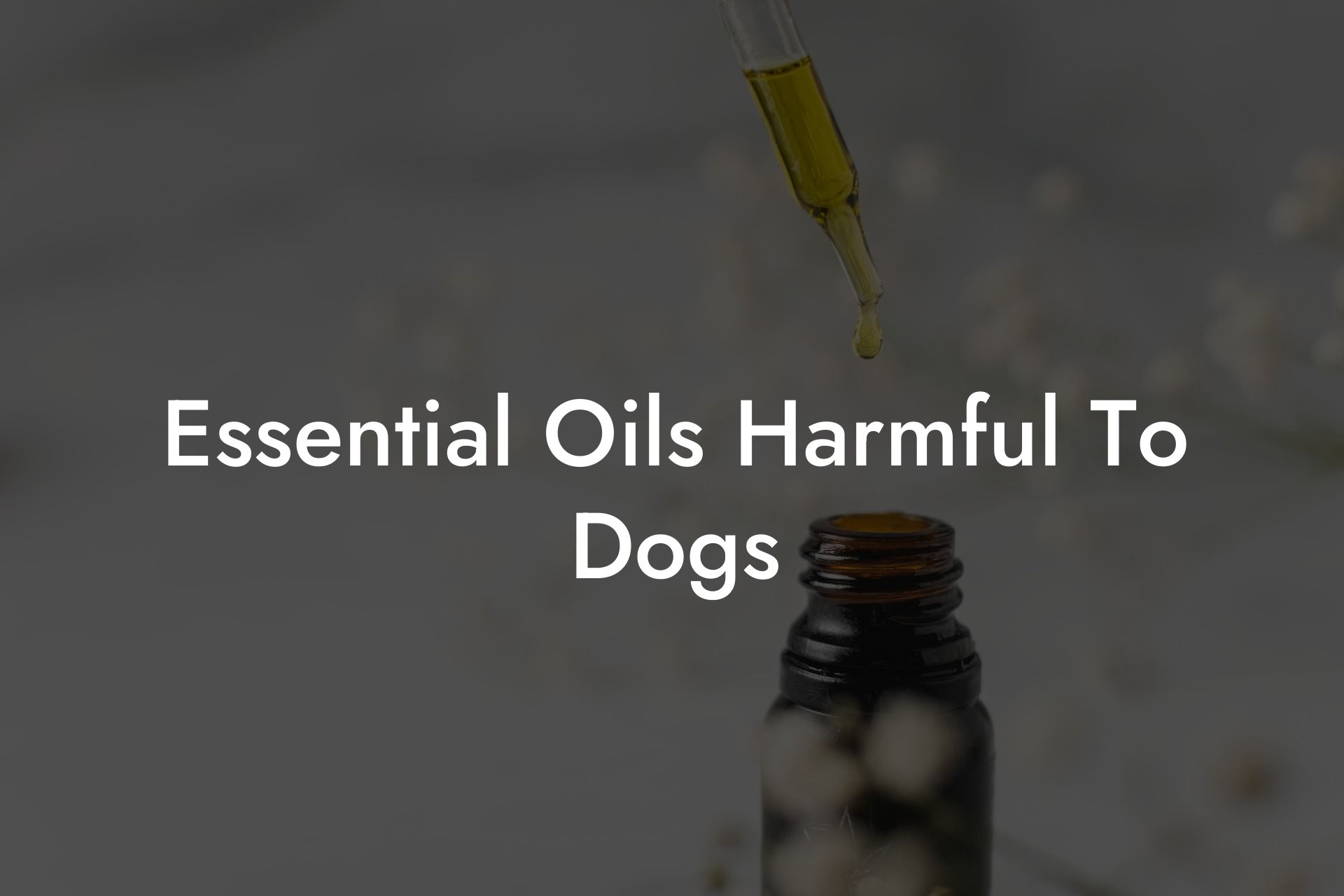As a pet owner, you may be eager to explore the benefits of essential oils and incorporate them into your home environment. However, not all essential oils are safe for our furry friends. It’s crucial to understand which essential oils can be harmful to dogs and how to use them safely in your home to avoid any adverse reactions and ensure your canine companion’s wellbeing.
Table of Contents
The Risk of Essential Oils to Dogs
Essential oils are highly concentrated plant extracts that contain volatile organic compounds (VOCs), which can be toxic to dogs when ingested, inhaled in large amounts, or applied directly to their skin. Dogs have a more heightened sense of smell than humans, and their liver may not be able to metabolize certain essential oils as efficiently, making them more susceptible to essential oil toxicity.
Essential Oils Harmful to Dogs
The following essential oils are known to be toxic to dogs and should be avoided:
- Tea Tree oil (Melaleuca alternifolia)
- Wintergreen oil (Gaultheria procumbens)
- Birch oil (Betula species)
- Cinnamon oil (Cinnamomum zeylanicum)
- Clove oil (Eugenia caryophyllata)
- Oregano oil (Origanum vulgare)
- Pennyroyal oil (Mentha pulegium)
- Thyme oil (Thymus vulgaris)
- Anise oil (Pimpinella anisum)
- Juniper oil (Juniperus species)
- Yarrow oil (Achillea millefolium)
- Garlic oil (Allium sativum)
- Peppermint oil (Mentha piperita)
- Eucalyptus oil (Eucalyptus radiata)
It’s important to note that this is not an exhaustive list, and there may be other oils that are not suitable for use around dogs. Always do thorough research before using a new essential oil in your home, and consult your veterinarian if you’re unsure about a specific oil’s safety.
Tips for Using Essential Oils Safely Around Dogs
While there are some essential oils that can be harmful to dogs, there are also many oils that are safe and beneficial when used correctly and sparingly. Here are some tips on how to use essential oils safely around your pets:
- Keep essential oils out of reach to prevent dogs from accidentally ingesting them.
- Avoid applying essential oils directly onto your dog’s skin or fur without proper guidance from a veterinary professional.
- Properly dilute essential oils using a carrier oil or a diffuser before exposing your dog to the scent.
- Ensure adequate ventilation in the room where essential oils are being diffused, and give your dog the option to leave the room if they find the aroma too strong.
- Monitor your dog for any signs of adverse reactions, such as excessive drooling, vomiting, difficulty breathing, or changes in behavior. If you notice any of these symptoms, consult your veterinarian immediately.
Essential Oils Harmful To Dogs Example:
Imagine you’ve just bought a new bottle of lavender essential oil, which is generally considered safe for dogs. You want to use it to create a calming environment in your home, but you’re unsure how to proceed safely with your Labrador Retriever.
First, ensure that the lavender oil is out of your dog’s reach when not in use, preventing any accidents or mishaps. When diffusing the oil, properly dilute it according to the manufacturer’s instructions and place the diffuser in a well-ventilated room. Allow your dog to come and go from the room as they please, giving them the opportunity to escape the scent if it’s too powerful for their liking. Continue to monitor your dog’s behavior, ensuring they’re not showing any signs of distress or discomfort.
In conclusion, it’s important to be aware of the essential oils that are harmful to dogs and how to use them responsibly in your home. By educating yourself on the potential risks and promoting a safe environment for your pets, you can enjoy the benefits of essential oils while ensuring the wellbeing of your beloved canine companions. Don’t forget to share this article with your fellow pet owners to spread awareness about essential oil safety and explore other guides on Oshu Oils for more valuable information. Experience the world of Oshu Oils’ artisan essential earth oils and elevate your wellbeing today.





















